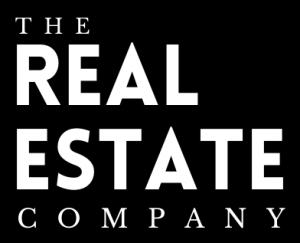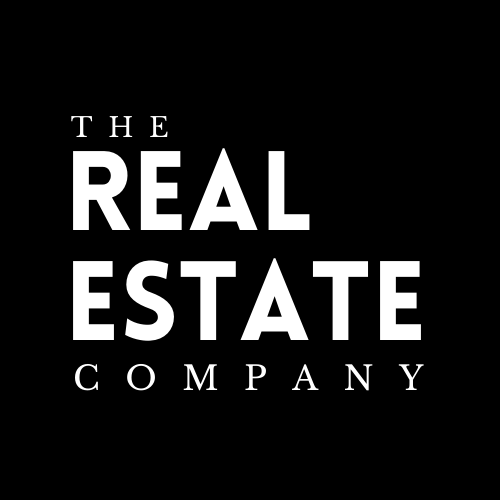 Are you ready to buy your first home or to sell your home this year? These are a few aconyms you shoudl know. It helps to become familiar with real estate jargon you might encounter during the process. In this article we will give you a cheat sheet to keep handy so you will be aquanted with the language of home buying.
Are you ready to buy your first home or to sell your home this year? These are a few aconyms you shoudl know. It helps to become familiar with real estate jargon you might encounter during the process. In this article we will give you a cheat sheet to keep handy so you will be aquanted with the language of home buying.
Affordability – How much house you can afford. this will include Your income, down payment and monthly debts.
Approved for short sale – A short sale is when a mortgage lender agrees to accept a mortgage payoff amount less than what is owed in order to facilitate a sale of the property by a financially distressed owner. The lender forgives the remaining balance of the loan.
Buy-rent breakeven horizon – A concrete point at which buying a home makes more financial sense than renting one.
Buyers market – It is a situation in which many things of the same kind are for sale, prices are low, and buyers have an advantage over sellers.
Comparative market analysis (CMA) – A comparative market analysis is a tool that real estate agents use to estimate the value of a specific property by evaluating similar ones that have recently sold in the same area.
Comps – Or comparable sales, are homes in a given area that have sold within the past several months that a real estate agent uses to determine a home’s value.
Days on market (DOM) – The number of days a property listing is considered active.
Listing price – The price of a home, as set by the seller.
Multiple listing service (MLS) – A multiple listing service is an organization with a suite of services that real estate brokers use .A database where real estate agents list properties for sale.
Sellers market – A seller’s market arises when demand exceeds supply. In other words, there are many interested buyers, but the real estate inventory is low. Since there are fewer homes available, sellers are at an advantage
Short sale – A short sale is when a mortgage lender agrees to accept a mortgage payoff amount less than what is owed in order to facilitate a sale of the property by a financially distressed owner. The lender forgives the remaining balance of the loan.
When shopping for a mortgage some definitions you need to know…
Conventional loan – A home loan not guaranteed by a government agency, such as the FHA or the VA.
Down payment – A certain portion of the home’s purchase price that a buyer must pay. A minimum requirement is often dictated by the loan type.
Fannie Mae – A government-sponsored enterprise chartered in 1938 to help ensure a reliable and affordable supply of mortgage funds throughout the country.
Federal Housing Administration (FHA) – A government agency created by the National Housing Act of 1934 that insures loans made by private lenders. The FHA is part of the U.S. Department of Housing and Urban Development.
FHA 203(k) – A rehabilitation loan backed by the federal government that permits home buyers to finance money into a mortgage to repair, improve or upgrade a home.
FHA loan – An FHA insured loan is a US Federal Housing Administration mortgage insurance backed mortgage loan that is provided by an FHA-approved lender. FHA mortgage insurance protects lenders against losses. FHA loans are different from conventional loans because they can be approved for borrowers with lower credit scores and may allow for down payments as low as 3.5 percent of the total loan amount.
Fixed-rate mortgage – A mortgage with principal and interest payments that remain the same throughout the life of the loan because the interest rate does not change.
Foreclosure – A property repossessed by a bank when the owner fails to make mortgage payments.
Freddie Mac – Freddie Mac was chartered by Congress in 1970 to keep money flowing to mortgage lenders in support of homeownership and rental housing. The statutory mission is to provide liquidity, stability and affordability to the U.S. housing market.
Mortgage banker – One who originates, sells, and services mortgage loans and resells them to secondary mortgage lenders such as Fannie Mae or Freddie Mac.
Mortgage broker – A licensed professional who works on behalf of the buyer to secure financing through a bank or other lending institution.
Mortgage interest rate – The price of borrowing money. The base rate is set by the Federal Reserve and then customized per borrower, based on credit score, down payment, property type and points the buyer pays to lower the rate.
Piggyback loan – A “piggyback” second mortgage is a home equity loan or home equity line of credit (HELOC) that is made at the same time as your main mortgage. Its purpose is to allow borrowers with low down payment savings to borrow additional money in order to qualify for a main mortgage without paying for private mortgage insurance
Prepayment penalty – A prepayment penalty is a fee that some lenders charge if you pay off all or part of your mortgage early. If you have a prepayment penalty, you would have agreed to this when you closed on your home.
Prime rate – The prime rate is the underlying index for most credit cards, home equity loans and lines of credit, auto loans, and personal loans.Typically, most consumers’ mortgage interest rate is going to be higher than the prime rate.
Principal, interest, property taxes and homeowners insurance (PITI) – The components of a monthly mortgage payment.
Private mortgage insurance (PMI) – Private mortgage insurance, also called PMI, is a type of mortgage insurance you might be required to pay for if you have a conventional loan. Like other kinds of mortgage insurance, PMI protects the lender—not you—if you stop making payments on your loan.
Points – Points, also known as discount points, lower your interest rate in exchange paying for an upfront fee. Lender credits lower your closing costs in exchange for accepting a higher interest rate. These terms can sometimes be used to mean other things. “Points” is a term that mortgage lenders have used for many years
Will you be applying for a Mortgage? If so thses are some mortage terms…
Adjustable-rate mortgage (ARM) – A variable-rate mortgage, adjustable-rate mortgage, or tracker mortgage is a mortgage loan with the interest rate on the note periodically adjusted based on an index which reflects the cost to the lender of borrowing on the credit markets.
Back-end ratio – One of two debt-to-income ratios that a lender analyzes to determine a borrower’s eligibility for a home loan. The ratio compares the borrower’s monthly debt payments to gross income.
Depository institutions – The term depository refers to a facility such as banks saving and loans and credit unions in which something is deposited for storage or safeguarding. These institutions underwrite as well as set home loan pricing in-house.
Debt-to-income ratio (DTI) – A ratio that compares a home buyer’s expenses to gross income.
Housing ratio – One of two debt-to-income ratios that a lender analyzes to determine a borrower’s eligibility for a home loan. The ratio compares total housing cost (principal, homeowners insurance, taxes and private mortgage insurance) to gross income.
Loan estimate – The Loan Estimate tells you important details about the loan you have requested. The lender must provide you a Loan Estimate within three business days of receiving your application
Loan-to-value ratio (LTV) – The amount of the loan divided by the price of the house. Lenders reward lower LTV ratios.
Origination fee – An origination fee is an upfront fee charged by a lender to process a new loan application. It acts as compensation for executing the loan.
Pre-approval – A pre-approval is a preliminary evaluation of a potential borrower by a lender to determine whether they can be given a pre-qualification offer. A real estate agent will request a pre-approval or pre-qualification letter before showing a buyer a home.
Pre-qualification – A basic assessment of income, assets and credit score to determine what, if any, loan programs a borrower might qualify for.
Underwriting – Underwriting services are provided by some large financial institutions, such as banks, insurance companies and investment houses, whereby they guarantee payment in case of damage or financial loss and accept the financial risk for liability arising from such guarantee
After you make a decission on purchashing a home here are some terms you will hear…
American Society of Home Inspectors (ASHI) – A not-for-profit professional association that sets and promotes standards for property inspections. Look for this accreditation or something similar when shopping for a home inspector.
Cash-value policy – A homeowners insurance policy that pays the replacement cost of a home, minus depreciation, should damage occur.
Closing costs – Closing costs include the myriad fees for the services and expenses required to finalize a mortgage. You’ll have to pay closing costs whether you buy a home or refinance
Contingencies – Conditions written into a home purchase contract that protect the buyer should issues arise with financing, the home inspection, etc.
Earnest money – A security deposit made by the buyer to assure the seller of his or her intent to purchase.
Mortgage escrow account – An escrow account, sometimes called an impound account depending on where you live, is set up by your mortgage lender to pay certain property-related expenses. The money that goes into the account comes from a portion of your monthly mortgage payment. The monthly payment usually goes into the escrow account to cover taxes and insurance
Home inspection – A home inspection is a limited, non-invasive examination of the condition of a home, often in connection with the sale of that home. Home inspections are usually conducted by a home inspector who has the training and certifications to perform such inspections.
Homeowners insurance – A policy that protects the structure of the home, its contents, injury to others and living expenses should damage occur. Your lender will require the first term of your homeowners insurance to be paid at closing.. they will deposit the funds into your escrow account for the next billing cycle
In escrow – A period of time (typically 30 days or more) after a buyer has made an offer on a home and a seller has accepted. During this time, the home is inspected and appraised, and the title searched for liens, etc.
Title insurance – Title insurance is simply protection for the lender and purchaser if there is a problem in the title or deed after the purchase is made.
Transfer taxes – Fees imposed by the state, county or municipality on transfer of title.
Walkthrough – A buyer’s final inspection of a home before closing.
Words to know when you own a home…
Amortization – Amortization is the process of paying off debt over time in regular installments of interest and principal sufficient to repay the loan in full by its maturity date. Repayment of a mortgage over the loan schedule.usually 15 or 30 years.
Deed – A deed is the legal document that establishes ownership of real property, and is also used to transfer the ownership of real property to another person or entity.
Equity – A percentage of the home’s value owned by the homeowner.
Homeowners association (HOA) – The governing body of a housing development, condo or townhome complex that sets rules and regulations. They charge monthly dues used to maintain common areas.
Lien – A lien is a form of security interest granted over an item of property to secure the payment of a debt or performance of some other obligation. The owner of the property, who grants the lien, is referred to as the lienee and the person who has the benefit of the lien is referred to as the lienor or lien holder
Property tax exemption – A reduction in taxes based on specific criteria, such as installation of a renewable energy system or rehabilitation of a historic home. 21 states offer homestead exemptions for seniors.
Refinancing – The act of paying off one loan by obtaining another. Refinancing is generally done to secure better loan terms, such as a lower interest rate.
Tax lien – The government’s legal claim against property when the homeowner neglects or fails to pay a tax debt.
Real estate is full of jargon (“DOM”, “HOA”, “pre-qual”, etc), and it can add layers of confusion to an already convoluted process. Whether you’re buying or selling a home. We hope this resource helped you learn the vocabulary.
Contact us (859) 979-1508) for a free consultation!
—
 About The Real Estate Company
About The Real Estate Company
Residential and Multi-family Realty Services for Lexington, Richmond, and Surrounding Areas. We close over 40 million in sales each year. Our love for Central Kentucky and our clients is the key to our success. We provide careful guidance, persistence, and savvy marketing to deliver results for our clients time after time.
> Learn More
